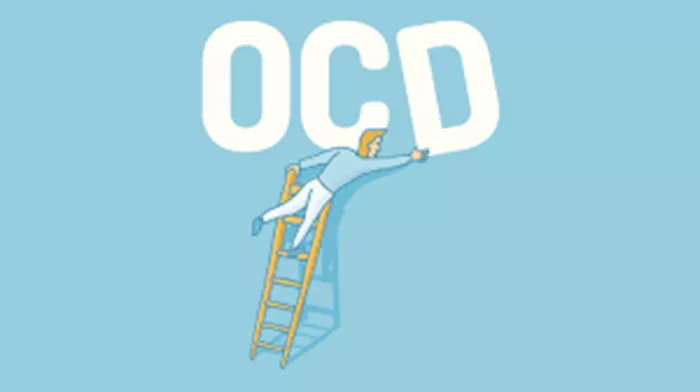Obsessive-Compulsive Disorder (OCD) is a mental health condition that can affect people of all ages. It is characterized by persistent, unwanted thoughts (obsessions) and repetitive behaviors or rituals (compulsions) that individuals feel compelled to perform. A common question people have is whether OCD gets worse with age. Understanding how OCD progresses over time can help those who struggle with it and those who care for them.
OCD is a lifelong condition, but its symptoms can change over time. Some people experience improvements in their symptoms, while others find that their condition worsens as they get older. This article explores how OCD may evolve with age, the factors that can influence its progression, and what can be done to manage it.
How OCD Can Evolve Over Time
OCD may manifest differently as people age. For some, the severity of obsessions and compulsions might increase, making daily life more challenging. Others might experience a decrease in symptoms or develop coping mechanisms that help them manage their condition. Factors such as stress, life changes, and treatment can play a significant role in how OCD progresses.
The Role of Stress in OCD
Stress is a common trigger for OCD symptoms. As people age, they may face increased stress due to life events like work pressures, relationship changes, or health issues. These stressors can exacerbate OCD symptoms, leading to a perceived worsening of the condition. It’s important to recognize that stress alone doesn’t cause OCD but can make it more challenging to manage.
Medication and Therapy: Managing Symptoms Effectively
Treatment options for OCD have improved over the years, offering people better ways to manage their symptoms. Cognitive Behavioral Therapy (CBT), specifically Exposure and Response Prevention (ERP), is often the most effective form of psychotherapy. Medication such as selective serotonin reuptake inhibitors (SSRIs) can also help manage symptoms. With proper treatment, many people can experience relief, even as they age.
Changes in OCD Symptoms With Age
As individuals grow older, their symptoms may change. For example, some may notice a reduction in compulsive behaviors, but obsessions might persist or become more intrusive. Conversely, others may develop more severe compulsions, making it difficult to function in daily life. It’s important to track the changes in symptoms to adjust treatment plans accordingly.
The Impact of Aging on OCD
Older adults with OCD may face additional challenges due to age-related cognitive and physical changes. These can include memory issues, physical health problems, or difficulty in managing daily routines. While these changes can affect how OCD manifests, they don’t necessarily lead to a worsening of the disorder itself.
Coping with OCD as You Age
Regardless of whether OCD gets worse with age, managing the disorder effectively is crucial. People with OCD can benefit from a variety of coping strategies, including:
Mindfulness and relaxation techniques: These can reduce anxiety, a common trigger for OCD symptoms.
Support networks: Connecting with others who understand OCD can provide emotional support.
Lifestyle changes: Maintaining a healthy lifestyle, including regular exercise and a balanced diet, can reduce stress and improve mental health.
The Importance of Early Intervention
Early intervention is key to managing OCD, regardless of age. The earlier someone receives treatment, the better the chances of controlling symptoms. If left untreated, OCD can worsen, especially if it is triggered by significant life events or stressors.
Conclusion
OCD can change over time, but with proper treatment and support, it’s possible to manage symptoms and improve quality of life. Whether OCD worsens or improves with age depends on several factors, including stress, life changes, and treatment. By staying informed and proactive, individuals with OCD can lead fulfilling lives, even as they get older.
FAQs About OCD
1. Can OCD symptoms get worse with age?
Yes, OCD symptoms can worsen with age, especially due to increased stress or health issues. However, some individuals may experience improvement.
2. How can stress affect OCD?
Stress is a significant trigger for OCD symptoms. As people age, they may encounter more stress, which can worsen their symptoms.
3. Is OCD a lifelong condition?
Yes, OCD is generally considered a lifelong condition, but its severity can vary with age and treatment.
4. Can therapy help manage OCD in older adults?
Yes, therapy, particularly Cognitive Behavioral Therapy (CBT), can be highly effective for managing OCD in adults of all ages.
5. Does medication help with OCD?
Yes, medications such as SSRIs can help reduce OCD symptoms, particularly when combined with therapy.
6. Can lifestyle changes reduce OCD symptoms?
Healthy lifestyle choices, such as regular exercise, a balanced diet, and good sleep hygiene, can help reduce stress and improve overall mental health.
7. What should someone do if their OCD symptoms worsen with age?
If OCD symptoms worsen, it’s important to consult a he
Related articles:


